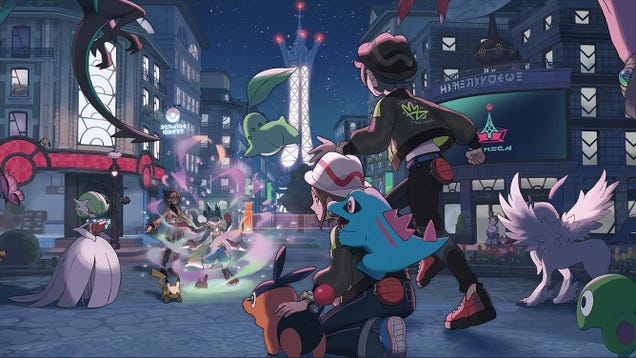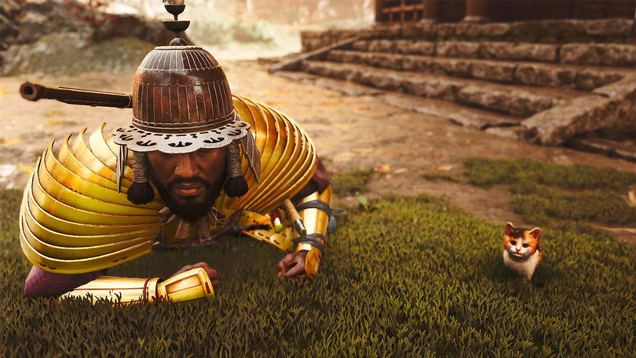Sharpen the story – a design guide to start-up’s pitch decks
In early-stage start-ups, the pitch deck is often the first thing investors see. Sometimes, it’s the only thing. And yet, it rarely gets the same attention as the website or the socials. Most decks are pulled together last minute, with slides that feel rushed, messy, or just off.
That’s where designers can really make a difference.
The deck might seem like just another task, but it’s a chance to work on something strategic early on and help shape how the company is understood. It offers a rare opportunity to collaborate closely with copywriters, strategists and the founders to turn their vision into a clear and convincing story.
Founders bring the vision, but more and more, design and brand teams are being asked to shape how that vision is told, and sold. So here are five handy things we’ve learned at SIDE ST for the next time you’re asked to design a deck.
Think in context
Designers stepping into pitch work should begin by understanding the full picture – who the deck is for, what outcomes it’s meant to drive and how it fits into the broader brand and business context. Their role isn’t just to make things look good, but to prioritise clarity over surface-level aesthetics.
It’s about getting into the founders’ mindset, shaping visuals and copy around the message, and connecting with the intended audience. Every decision, from slide hierarchy to image selection, should reinforce the business goals behind the deck.
Support the narrative
Visuals are more subjective than words, and that’s exactly what gives them power. The right image can suggest an idea, reinforce a value, or subtly shift perception without a single word.
Whether it’s hinting at accessibility, signalling innovation, or grounding the product in context, design plays a strategic role in how a company is understood. It gives designers the opportunity to take centre stage in the storytelling, shaping how the company is understood through visual choices.
But that influence works both ways. Used thoughtlessly, visuals can distort the story, suggesting the wrong market, implying a different stage of maturity, or confusing people about the product itself. When used with care, they become a powerful design tool to sharpen the narrative and spark interest from the very first slide.
Keep it real
Stock photos can be tempting. They’re high-quality and easy to drop in, especially when the real images a start-up has can be grainy, unfinished, or simply not there yet.
But in early-stage pitch decks, they often work against your client. Instead of supporting the story, they flatten it, and rarely reflect the actual team, product, or context.
This is your chance as a designer to lean into what’s real, even if it’s a bit rough. Designers can elevate even scrappy assets with thoughtful framing and treatment, turning rough imagery into a strength. In early-stage storytelling, “real” often resonates more than “perfect.”
Pay attention to the format
Even if you’re brought in just to design the deck, don’t treat it as a standalone piece. It’s often the first brand touchpoint investors will see—but it won’t be the last. They’ll go on to check the website, scroll through social posts, and form an impression based on how it all fits together.
Early-stage startups might not have full brand guidelines in place yet, but that doesn’t mean there’s no need for consistency. In fact, it gives designers a unique opportunity to lay the foundation. A strong, thoughtful deck can help shape the early visual language and give the team something to build on as the brand grows.
Before you hit export
For designers, the deck isn’t just another deliverable. It’s an early tool that shapes and impacts investor perception, internal alignment and founder confidence. It’s a strategic design moment to influence the trajectory of a company before it’s fully formed.
Designers who understand the pressure, pace and uncertainty founders face at this stage are better equipped to deliver work that resonates. This is about more than simply polishing slides, it’s about helping early-stage teams tell a sharper, more human story when it matters most.
Maor Ofek is founder of SIDE ST, a brand consultancy that works mainly with start-ups.
#sharpen #story #design #guide #startupsSharpen the story – a design guide to start-up’s pitch decks
In early-stage start-ups, the pitch deck is often the first thing investors see. Sometimes, it’s the only thing. And yet, it rarely gets the same attention as the website or the socials. Most decks are pulled together last minute, with slides that feel rushed, messy, or just off.
That’s where designers can really make a difference.
The deck might seem like just another task, but it’s a chance to work on something strategic early on and help shape how the company is understood. It offers a rare opportunity to collaborate closely with copywriters, strategists and the founders to turn their vision into a clear and convincing story.
Founders bring the vision, but more and more, design and brand teams are being asked to shape how that vision is told, and sold. So here are five handy things we’ve learned at SIDE ST for the next time you’re asked to design a deck.
Think in context
Designers stepping into pitch work should begin by understanding the full picture – who the deck is for, what outcomes it’s meant to drive and how it fits into the broader brand and business context. Their role isn’t just to make things look good, but to prioritise clarity over surface-level aesthetics.
It’s about getting into the founders’ mindset, shaping visuals and copy around the message, and connecting with the intended audience. Every decision, from slide hierarchy to image selection, should reinforce the business goals behind the deck.
Support the narrative
Visuals are more subjective than words, and that’s exactly what gives them power. The right image can suggest an idea, reinforce a value, or subtly shift perception without a single word.
Whether it’s hinting at accessibility, signalling innovation, or grounding the product in context, design plays a strategic role in how a company is understood. It gives designers the opportunity to take centre stage in the storytelling, shaping how the company is understood through visual choices.
But that influence works both ways. Used thoughtlessly, visuals can distort the story, suggesting the wrong market, implying a different stage of maturity, or confusing people about the product itself. When used with care, they become a powerful design tool to sharpen the narrative and spark interest from the very first slide.
Keep it real
Stock photos can be tempting. They’re high-quality and easy to drop in, especially when the real images a start-up has can be grainy, unfinished, or simply not there yet.
But in early-stage pitch decks, they often work against your client. Instead of supporting the story, they flatten it, and rarely reflect the actual team, product, or context.
This is your chance as a designer to lean into what’s real, even if it’s a bit rough. Designers can elevate even scrappy assets with thoughtful framing and treatment, turning rough imagery into a strength. In early-stage storytelling, “real” often resonates more than “perfect.”
Pay attention to the format
Even if you’re brought in just to design the deck, don’t treat it as a standalone piece. It’s often the first brand touchpoint investors will see—but it won’t be the last. They’ll go on to check the website, scroll through social posts, and form an impression based on how it all fits together.
Early-stage startups might not have full brand guidelines in place yet, but that doesn’t mean there’s no need for consistency. In fact, it gives designers a unique opportunity to lay the foundation. A strong, thoughtful deck can help shape the early visual language and give the team something to build on as the brand grows.
Before you hit export
For designers, the deck isn’t just another deliverable. It’s an early tool that shapes and impacts investor perception, internal alignment and founder confidence. It’s a strategic design moment to influence the trajectory of a company before it’s fully formed.
Designers who understand the pressure, pace and uncertainty founders face at this stage are better equipped to deliver work that resonates. This is about more than simply polishing slides, it’s about helping early-stage teams tell a sharper, more human story when it matters most.
Maor Ofek is founder of SIDE ST, a brand consultancy that works mainly with start-ups.
#sharpen #story #design #guide #startups













